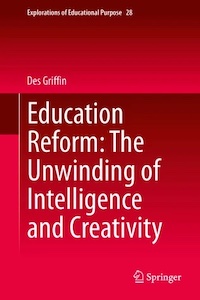Other politics
The government’s broad road to re-election
To quote Martyn Goddard:
The conventional wisdom – if that’s the word – is that Anthony Albanese’s Labor government is in serious decline and will lose its majority in the next election. According to the punditry, the failure of the Voice referendum revealed the government as being preoccupied with issues that were peripheral to most voters.
That’s the opening paragraph in his post Labor: the fightback begins. Labor is on track not only to win the next election, but to do so with an increased majority, he argues in a three-part explanation.
In the first part he describes how at this stage of the electoral cycle Labor is actually travelling reasonably well. Many governments, particularly the Howard government, have been in a far worse situation at this stage, and have gone on to win substantial victories. (But does the Albanese government have anyone in its ranks who can match the savagery and disregard for the truth of Howard’s attack dog, Peter Reith?)
The second part is about policy. The Coalition has no ways that can improve people’s lot. In fact its record and rhetoric are about suppressing wages.
The third is about electoral arithmetic. In short, Labor does not hold many marginal seats, while the Coalition, including the National Party, has many. Also while it’s hard for the Coalition to dislodge independents, there is the possibility of Labor picking up a seat or two from the Greens now that they have gone off-piste.
Goddard’s reasoning is broadly similar to that in Paul Bongiorno’s Saturday Paper article Canberra sizes up the Trump Bump. The main difference is the amount of detail in Goddard’s post, because it’s in the detail that one appreciates the challenge faced by Dutton and his colleagues.
One strong theme in both articles is that the Coalition will try to use the Trumpian tactic of presenting the government as being more concerned with “woke” issues than with people’s real concerns. It will be a hard line to sustain, however: the Albanese government is probably level-pegging with the Hughes government on wokeness.
More problematic for the government is the Trumpian question “are you as well-off now as you were when you elected the Labor government?”. That line is given an easy run by journalists, including many in the ABC, who keep talking about a “cost of living crisis” – a frame that implies our lives took a terrible turn for the worse because we elected a Labor government. It’s an entirely inaccurate representation of our economic situation: we have deep-seated structural weaknesses, and a highly inequitable and demotivating distribution of income, wealth and opportunity. These have been in the making for at least the last 20 years. This outcome is not a “crisis” and it leaves most people relatively well-off.
Goddard’s analysis undoubtedly goes against most journalists’ superficial assessment of Labor’s electoral chances, but it would align with what the Coalition’s back-room analysts are finding.
Dutton probably considers himself to be on a two-election path to becoming prime minister. The important issue for the nation is whether the Liberal Party can be delivered a sufficiently strong blow to force it to reform – to purge itself of its extreme right, to assert its independence from the National Party, and to re-constitute itself as a centrist party concerned for the nation’s well-being rather than simply getting into office.
Something happened in a quiet Adelaide suburb
If a filmmaker were looking for a site to set a movie involving middle-class suburban Australians, he or she could not find a better location than the southwest suburbs of Adelaide – Seacliff, Hallett Cove and adjoining suburbs about 15 to 20 km from the CBD.
These constitute the state electorate of Black, where there was a by-election last week. The by-election was triggered by the resignation of the sitting Liberal Party member, a former leader of the opposition, after he was charged by police with supplying a controlled substance.
Black is a typical swing seat, having been held by both Labor and the Liberals in recent years. But in this by-election the Liberals suffered a whopping 17 percent loss in primary vote, about half of which was picked up by Labor and the other half by the Greens and a conservative “Australian Family” candidate. Labor now holds the seat on a 60:40 two-party basis after preferences. Full results are on William Bowe’s Poll Bludger site.
What makes this by-election remarkable is that it has been won by the government off the opposition. By-elections generally see a swing against the government, particularly a government that has been in office for some time: the Malinauskas government was elected 32 months ago. It is even rarer for a government to win more than one seat off the opposition. Arian Beaumont points out in his Conversation contribution that this is the second time the Malinauskas government has won a seat off the Liberal Party opposition.
There are many possible explanations for the swing. Maybe the new candidate couldn’t shake off the effect of the accusations against the previous member. Maybe the politics of abortion influenced the vote: it’s been a divisive issue in the state Liberal Party. Maybe it’s just that Malinauskas and his team are seen as a particularly competent government.
It would be rash to suggest it has federal implications, but anything that shakes the Liberal Party’s smug and arrogant overconfidence – their belief that the party born to rule doesn’t have to explain its policies – must surely be for the better in Australia’s political life.
The coming German election

With all the noise about the US election we might have missed the news that Germany’s centrist government – the Straßenampelcoalition of Social Democrats, Free Democrats and Greens – has collapsed, and will be going to the polls on February 23, seven months before full term.
It’s unfortunate timing, in view of the implications of Trump’s election on NATO and European security, particularly in relation to Ukraine.
Many are concerned about the rise of the far right Alternative für Deutschland, which in the Thuringen Länder elections in August won almost a third of the vote. As has been the case with Trump’s Republicans, AfD has been successfully appealing to disaffected young voters.
The ABC’s Nick Baker and Annabelle Quince put the AfD’s recent success into perspective, in their post What's behind the rise of the far right in Germany? It has done well in the eastern Länder, but there has always been an east-west divide, well before the formal postwar division. The political and social histories of east and west Germany are different. They report that National Socialism arose in the east, not in the west.
Also of relevance in current times, many people in the east feel that they have been let down by re-unification. It has not done as well as people hoped in 1989 when cheering crowds pulled down the wall and expectations were raised.
We can follow polling for Germany’s national election on Politico. At present the Christian Democrats (CDU/CSU) are well in the front with 32 percent support. AfD is in second place, with 19 percent support – down on its level a year ago. Notably the Social Democrats have only 16 percent support.
An Australian, used to the way the Liberal Party joins with the National Party to form far-right coalitions and does preference deals with One Nation, may assume that the Christian Democrats will form a coalition with AfD, but Germany tends to favour centrist coalitions. There will probably be a centrist coalition, with the Christian Democrats as the main partner, displacing the Social Democrats.
Kids and social media – a cacophony of confusion
Des Griffin, author of Education reform: the unwinding of intelligence and creativity, has asked me to give some attention to the government’s legislation to ban kids under 16 from using social media.
Because it is being very thoroughly covered in the mainstream media, and because I have no more expertise in social media than I do in Sanskrit poetry, I haven’t been covering it in these roundups, but Des and others would undoubtedly like to be directed to a few links.
The Conversation has a separate website, Teens and Social Media, with links to 31 contributions by various experts.
Danielle Einstein of Macquarie University writes with assurance that there is reliable evidence social media harms young people and that debates about it are a misdirection. She presents convincing evidence that many things young people do on social media are indeed harmful, but does this mean that everything they do on social media is harmful, and that the same harm would not be done in a world without social media?
Rachael Sharman of the University of the Sunshine Coast believes that kids should be banned from using social media because it hampers teenagers figuring out who they want to be.
Judith Ireland and Matt Garrow of The Conversation asked five experts if parents should be worried about social media: three said “yes”, and two said “no”, with supporting argument and evidence.
Joanne Orlando of the University of Western Sydney argues that social media is like sex: young people need education, not unrealistic bans. They need help in developing social media literacy.
Amanda Third of Western Sydney University had the radical idea of finding out what kids want: they want privacy and protection from bad actors attempting to interact with children.
There is confusion about what will be included in the government’s ban. Lisa Given of RMIT University points out that parents (and kids) still don’t know which apps are out. Marcus Carter and Taylor Hardwick of the University of Sydney point out that games are crucial for kids’ social lives. (Games and YouTube are not included in the bans.)
Lisa Given of RMIT University prefers means other than a ban to protect kids. She thinks a digital duty of care on technology companies is a good idea – if it can be enforced.
Even if the harms from social media outweigh its benefits, can a ban be effective? Rebecca Houlihan of Monash University reminds us what happened last time the Commonwealth tried to make a “clean” internet in 2006 and 2007. The technical solution the government proposed was going to slow internet speeds by up to 87 percent, block access to legal websites, and wouldn’t block all illegal content.

Writing in Pearls and Irritations Tony Ward puts the ban in even wider perspective: Social media ban targets the wrong age group and the wrong type of media. To reduce social harm, instead of a ban on teens accessing social media, perhaps we should consider a ban on over 60 year-olds reading and listening to News Corporation outlets. Research suggests that children are much more discerning and sceptical than adults assume them to be.
Having examined arguments ad evidence, Des sums up his view:
The proposition before Parliament is utterly stupid: it fails to take account of the importance of digital media in social communication, as essential to young people as it is to everyone else. It cuts across the role and responsibility of parents to oversight their children and makes superfluous their helping to coach their children on how to use media productively and safely. And it removes the important opportunity for young people themselves to learn how to navigate one of the challenges of modern society.
Politicians think they are helping things: they aren’t.
Why is the National Anti-Corruption Commission so timid about Robodebt?
The roundup of 9 November covered the NACC’s decision not to investigate referrals of six persons from the Commission into the Robodebt Scheme.
Following a report by NACC Inspector Gail Furness that the decision involved “officer misconduct” associated with a conflict of interest, the Commission is now bound to appoint someone to reconsider that decision.

Integrity watchdog
Writing in the Saturday Paper Rick Morton gives us some insight into the NACC’s process of making that appointment. It appears that former solicitor-general Justin Gleeson was to have been appointed, but the appointment was rescinded over concerns that it might offend an unnamed Coalition minister who was referred for investigation by the Robodebt Commission: NACC dumped Gleeson over concerns for Coalition minister.
The general issue covered in Morton’s account is the Commission’s general timidity in carrying out its job. It is taking a too narrow interpretation of its own powers, he and others argue. The explanation in part lies in the way the Commission was established: the government had made the establishment of an anti-corruption commission an election promise, and independent members of Parliament had called for a powerful commission. But in drafting the legislation the government, seeking “bipartisan” support, did so as a joint exercise with the Coalition, even though the Coalition has always resisted anything that may expose the way governments make decisions. Albanese doesn’t seem to realize that Parliament is comprised of more than two old political parties.
Besides his Saturday Paper article, you can also hear Morton on the Schwartz Media 7am podcast: The Coalition minister and the corruption watchdog.